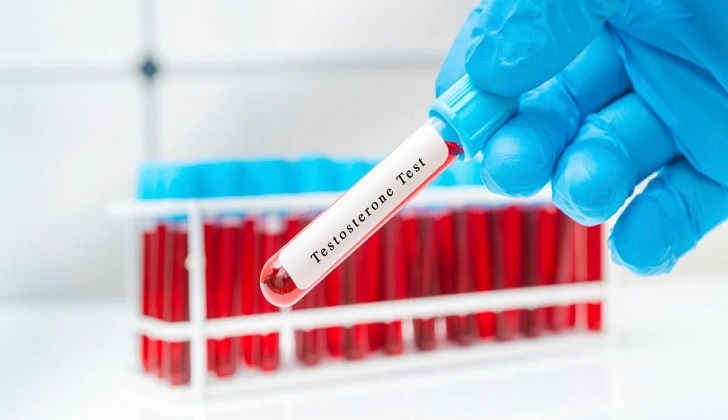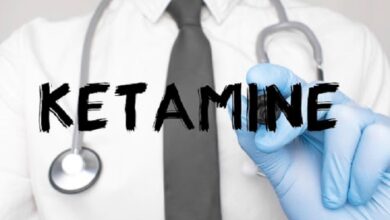Testosterone Misconceptions and Myths: Separating Fact from Fiction

Testosterone is a hormone that plays a vital role in the development and maintenance of male characteristics. While it’s no secret that testosterone is essential for men’s health, it is often the subject of numerous misconceptions and myths. In this blog post, we will delve into some common misconceptions about testosterone and separate fact from fiction. A detailed article about Testosterone Misconceptions and Myths
Understanding Testosterone: The Basics
Before we can dispel myths and misconceptions, it’s crucial to understand the basics of testosterone. Testosterone is a sex hormone produced in both men and women, although men tend to have higher levels. It is primarily produced in the testes in men and the ovaries in women, with smaller amounts produced in the adrenal glands.
Testosterone plays a significant role in the development of male secondary sexual characteristics, such as facial hair, deepening of the voice, and increased muscle mass. It also affects libido, bone density, and red blood cell production. In women, it is important for maintaining bone and muscle mass, and it plays a role in sexual health.
Myth 1: More Testosterone Means More Aggression
One of the most common misconceptions about testosterone is that higher levels lead to increased aggression. This belief has been perpetuated by pop culture, where aggressive, hyper-masculine characters are often associated with high testosterone levels. However, the reality is more nuanced.
Research suggests that while testosterone can influence behavior, its effects are context-dependent. High testosterone levels may increase competitiveness and assertiveness, but they do not necessarily equate to aggression or violence. Moreover, individual differences, genetics, and environmental factors play a significant role in how testosterone affects behavior.
Myth 2: Testosterone Equals Uncontrollable Sex Drive
Another myth surrounding testosterone is that it leads to an uncontrollable and insatiable sex drive. While it’s true that testosterone is linked to sexual desire, it does not mean that individuals with higher levels are perpetually consumed by lust.
Sexual desire is a complex interplay of psychological, social, and physiological factors. Testosterone is just one part of the equation. In fact, overly high levels of testosterone can lead to reduced sexual desire due to hormonal imbalances.
Myth 3: Testosterone Replacement Therapy Equals Steroid Abuse
Testosterone replacement therapy (TRT) is a medical treatment used to restore testosterone levels in men with clinically low testosterone. Some people wrongly associate TRT with steroid abuse and the illegal use of anabolic steroids in sports.
It’s essential to distinguish between medically supervised TRT and illicit steroid use. TRT is administered under the guidance of healthcare professionals to address low testosterone levels associated with medical conditions. Steroid abuse, on the other hand, involves the unsanctioned use of synthetic hormones for performance enhancement or bodybuilding, often with dangerous consequences.
Myth 4: Testosterone Supplements Equal Instant Muscle Gain
Many fitness enthusiasts and bodybuilders believe that taking over-the-counter testosterone supplements will lead to rapid muscle gains. This misconception is not only misleading but also potentially harmful.
While testosterone is crucial for muscle growth, simply increasing its levels does not guarantee significant muscle gains. Muscle development depends on various factors, including diet, exercise, genetics, and other hormones. Additionally, the use of unregulated testosterone supplements can have adverse side effects.
Myth 5: Low Testosterone is Always a Problem
Contrary to popular belief, having low testosterone levels is not necessarily a problem that needs immediate intervention. Testosterone levels naturally decline with age, and it is normal to experience a decrease in testosterone as men grow older.
Low testosterone can be a concern when it leads to symptoms like fatigue, low libido, and mood disturbances. However, these symptoms do not necessarily warrant treatment if they are not significantly impacting an individual’s quality of life.
Myth 6: Testosterone is Only About Masculinity
While testosterone is often associated with masculinity, it serves various essential functions in both men and women. In women, testosterone contributes to overall health, affecting energy levels, muscle mass, and bone density. It also plays a role in sexual well-being. Recognizing the importance of testosterone in both sexes is crucial to dispelling the myth that it is solely a male hormone.
Debunking the Myths of Testosterone
Testosterone is a complex hormone with various functions and impacts on the human body. Debunking the misconceptions and myths surrounding testosterone is essential for promoting a more accurate understanding of its role in our lives.
It is important to remember that testosterone is not a one-size-fits-all hormone. Its effects vary from person to person and depend on a range of factors, including genetics, lifestyle, and environmental influences. Dispelling these myths allows for a more nuanced and informed perspective on testosterone, enabling individuals to make better decisions about their health and well-being.
While testosterone is undoubtedly a critical hormone, it’s only one piece of the puzzle when it comes to health, well-being, and behavior. It’s vital to approach the topic with a balanced view, relying on scientific research and medical expertise to separate fact from fiction.
In conclusion, understanding the truths about testosterone empowers individuals to make informed decisions about their health and lifestyle without falling victim to misconceptions and myths that have persisted for too long. By recognizing the complexities and nuances of this hormone, we can promote a healthier and more accurate dialogue surrounding testosterone and its role in our lives.





